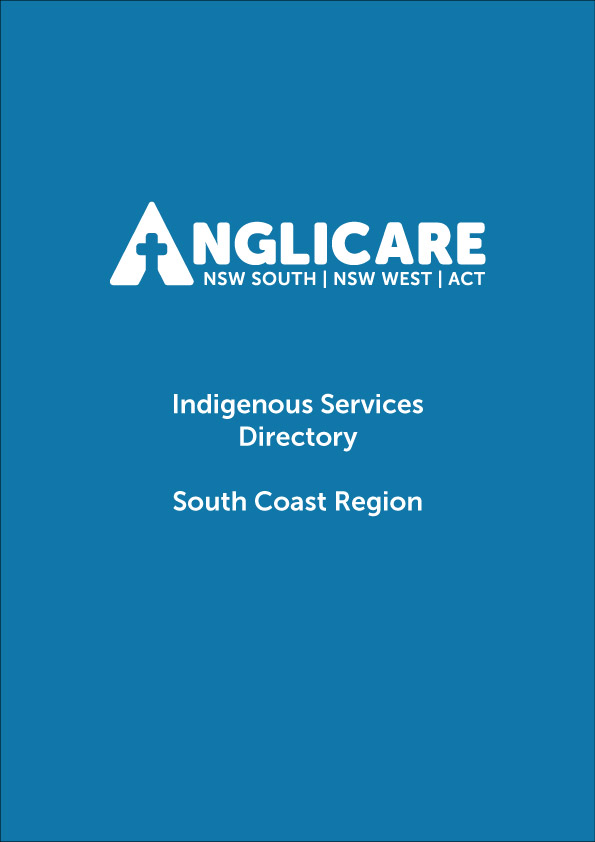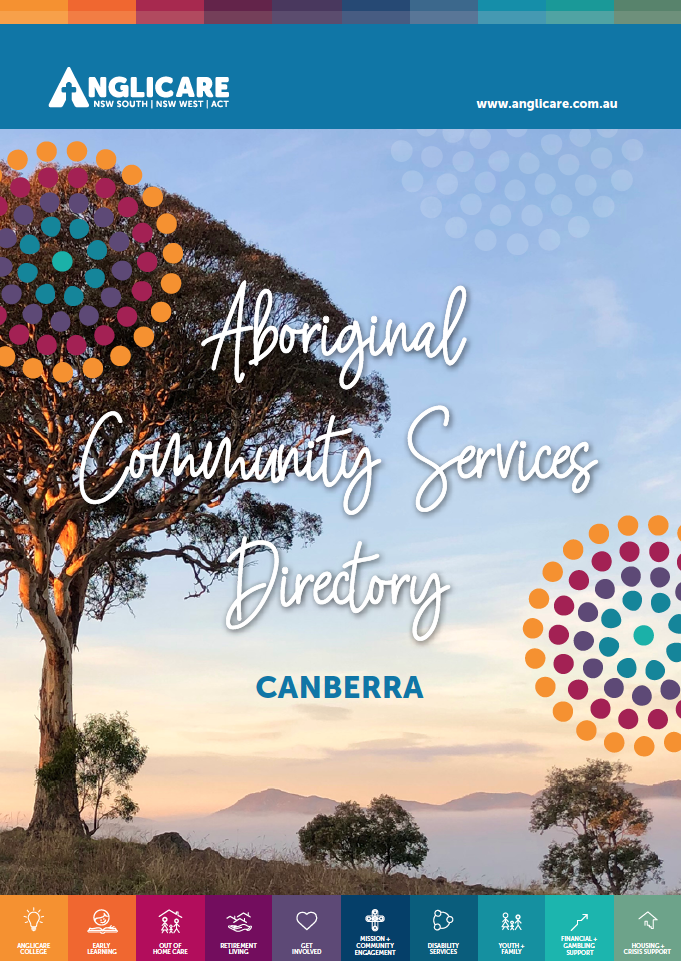RECONCILIATION ACTION PLAN
Anglicare’s commitment to reconciliation
Our whole organisation approach to creating an environment of cultural safety
Anglicare acknowledges Aboriginal and Torres Strait Islander Australians as the First Peoples and Traditional Custodians of this land. We celebrate the living cultures, strengths and achievements of the First Nation communities in which we work, including knowledge keepers and Elders of every generation. Moreover, we value the stories of resilience and survival which make up Indigenous Australia.
Anglicare acknowledges the impact of colonisation including the role the church has played in the untold history of this land. It also recognises the inequalities experienced by Aboriginal and Torres Strait Islander people on all of the socio economic life indicators. Thus, Anglicare will work in partnership with Aboriginal people in ways that will:
- Celebrate and affirm the culture of Indigenous Australians,
- Seek justice and contribute to the wellbeing of Aboriginal and Torres Strait Islander people, and
- Be based on two-way learning and will contribute to the capacity of the families and communities it serves.
Cultural Safety
Anglicare has made a commitment as an organisation to create an environment of cultural safety.
Cultural safety is “an environment that is safe for people, where there is no assault, challenge or denial of their identity, of who they are and what they need. It is about shared respect…..and truly listening” (Williams, 2012)
To achieve this, Anglicare is working toward embedding cultural safety within policies and procedures, values, vision and strategic plan. This whole organisation approach, works to affirm the identity of Aboriginal people, families and communities.
Wise Practice
Wise Practice is a framework of care developed by, and for, First Nations people. Derived from the strengths and inherent wisdom of Indigenous Australians, Wise Practices prioritises local strengths and culture. Likewise it emphasises local leadership and self-determination in the delivery of human services. Anglicare is committed to the Wise Practices framework of care in all of its work with Aboriginal and Torres Strait Islander peoples. (Reconciliation Action Plan 2019-2021).
Aboriginal Services Directory
It is a target of our Reconciliation Action Plan to develop a directory of Indigenous Services in our regions.
Where We Work
We acknowledge the Aboriginal nations of this land: its many custodians who continue to care for Country, and the way in which Country has cared for her people. We acknowledge the history of this land and the stories of resilience and survival which make up Indigenous Australia. We give thanks for Aboriginal Elders and knowledge keepers of each generation including the many Aboriginal communities which contribute to the life of our region.
May we walk gently on this land and commit ourselves to reconciliation.
Resources
Storytelling Connects Bourke Teens to their Elders (2019. Radio National)
The Art of Indigenous Incarceration (2019. Radio National)
Broken Hill Prisoners find a Voice – Cultural Connection through music and arts (2019. Radio National)
Insights into life for Indigenous Australian young people in the remote NSW town of Brewarrina (2019. ABC TV “Oneland”)
Strengths of Australian Aboriginal Cultural Practices in Family Life and Child Rearing (2018) Australian Institute of Family Studies
Raman, S. Reynolds, S. & Khan, R. (2011). Addressing the Wellbeing of Aboriginal Children in OOHC: are we there yet?
Secretariat National Aboriginal and Islander Child Care (SNAICC)
NSW Child Family and Community Peak Aboriginal Corporation (Absec)
Working with Aboriginal and Torres Strait Islander people (2018)
Krakouer, J. Wise, S. & Connelly M. (2018). We Live and Breathe Through Culture: conceptualising cultural connection for Indigenous Australian children in OOHC
Long, M. & Sephton, R. (2011). Rethinking the Best Interests of the Child: voices from Aboriginal child and family welfare practitioners.
Working with Aboriginal and Torres Strait Islander you people and their families PDF factsheet. Healing Foundation.
Yarning about Yarning in Health Care Youtube. Gukwonderuk Indigenous Health Unit.
Australian Institute Aboriginal and Torres Strait Islander Studies (AIATSIS)
Finding Your Family (AIATSIS)
Finding Your Mob (Department of Aboriginal Affairs)
Finding Indigenous Family History (National Library of Australia)
Native Title Service Provider ACT & NSW Geneology Service (NTSCorp)
At the local level, speak to Local Aboriginal Land Councils, Elders Groups and/or Local Aboriginal inter-agencies or consultative groups. You can also speak to NSW Government DCJ Cultural Connection Officers.
Aboriginal and Torres Strait Islander Connected Beginnings: SNAICC
A Strengths Based Approach Towards Aboriginal and Torres Strait islander Children (2017) Dept Families Housing Community Services and Indigenous Affairs
NITV programs – eg Little J and Big Cuz TV series and on-line games
NSW National Parks and Wildlife – contact Aboriginal rangers and sites officers for school holiday programs on Country
Approach local Elders groups and/or inter-agencies for what is happening locally
Emerging Minds: Working with Aboriginal and Torres Strait Islander Families and Children Toolkit
Secretariat National Aboriginal and Islander Child Care (SNAICC)
NSW Child Family and Community Peak Aboriginal Corporation (Absec)
Aboriginal and Torres Strait Islander Children; Aboriginal and Torres Strait Islander Social and Emotional Wellbeing. Emerging Minds.
Gambay First Languages Map (First Languages Australia)
Demonstrating Inclusive and Respectful Language (Responding to Racism)
Why we need more indigenous psychologists. ABC Radio All In The Mind. presented by Adj Prof Tracey Westnerman.
Culturally Informed Trauma Practice and Healing. Emerging Minds Podcast.
Artwork Gallery
We value the importance of visual art as a method of storytelling in Aboriginal culture. Here is a gallery of artwork displayed in Anglicare locations across ACT & NSW.
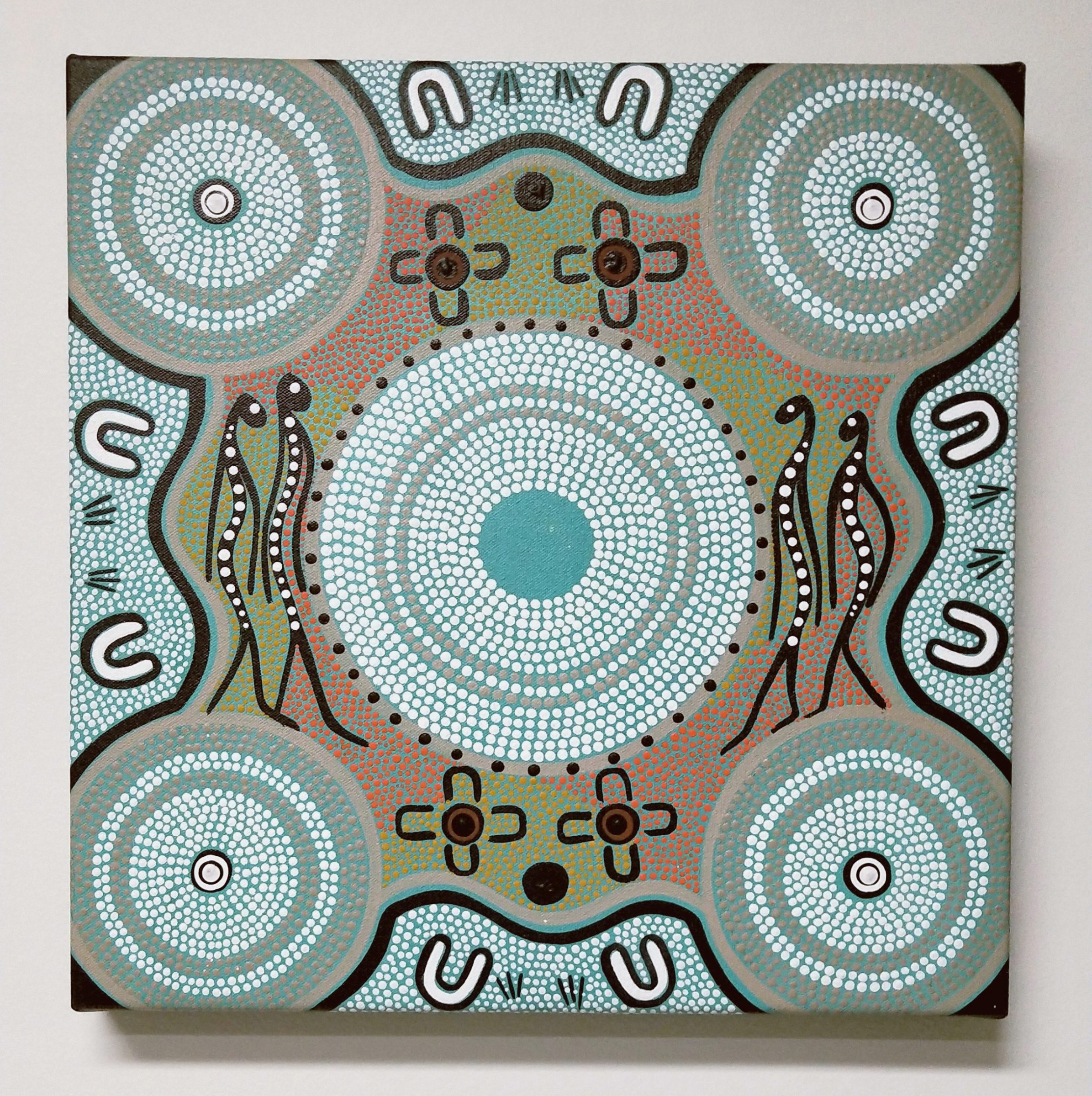
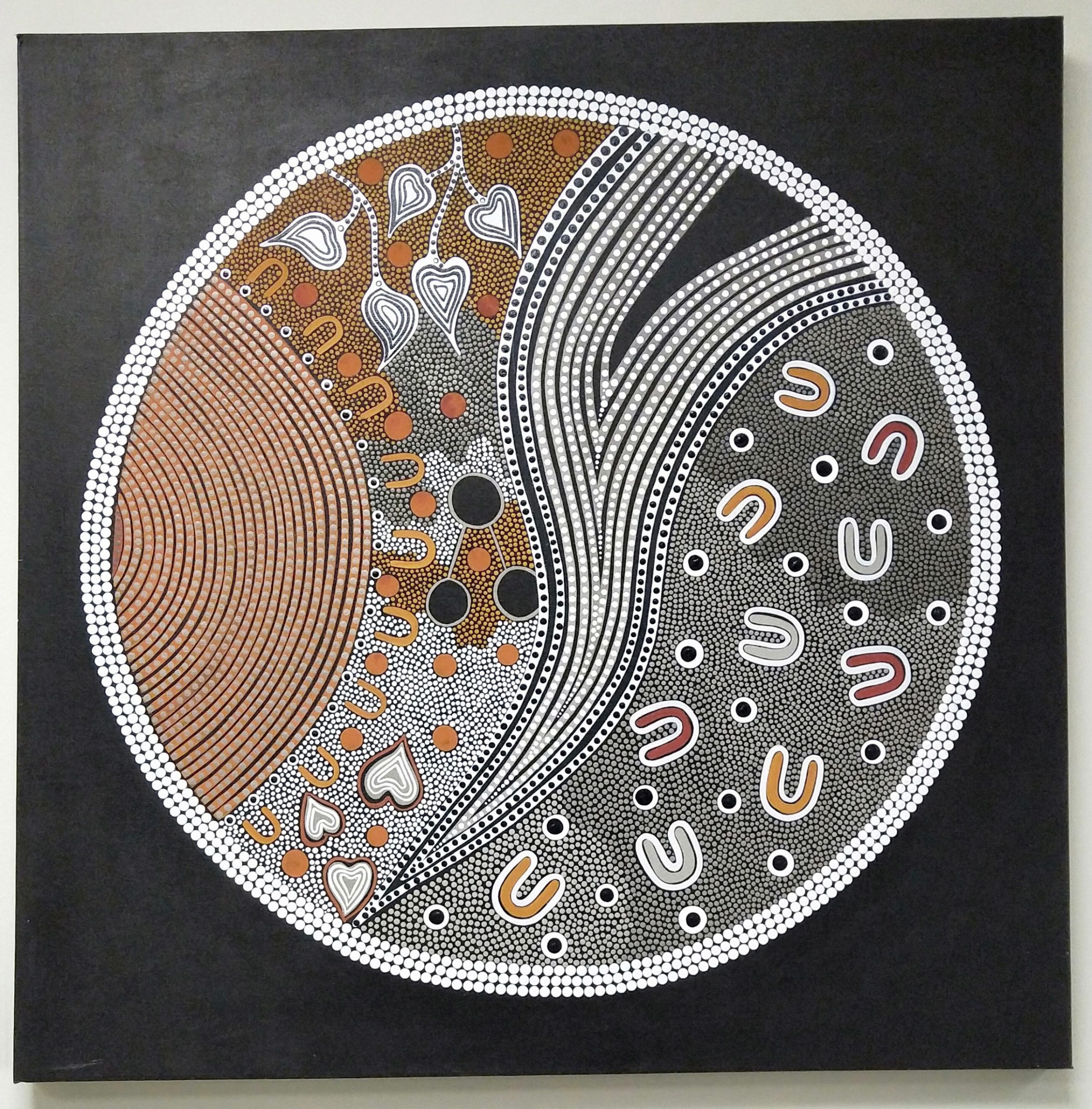
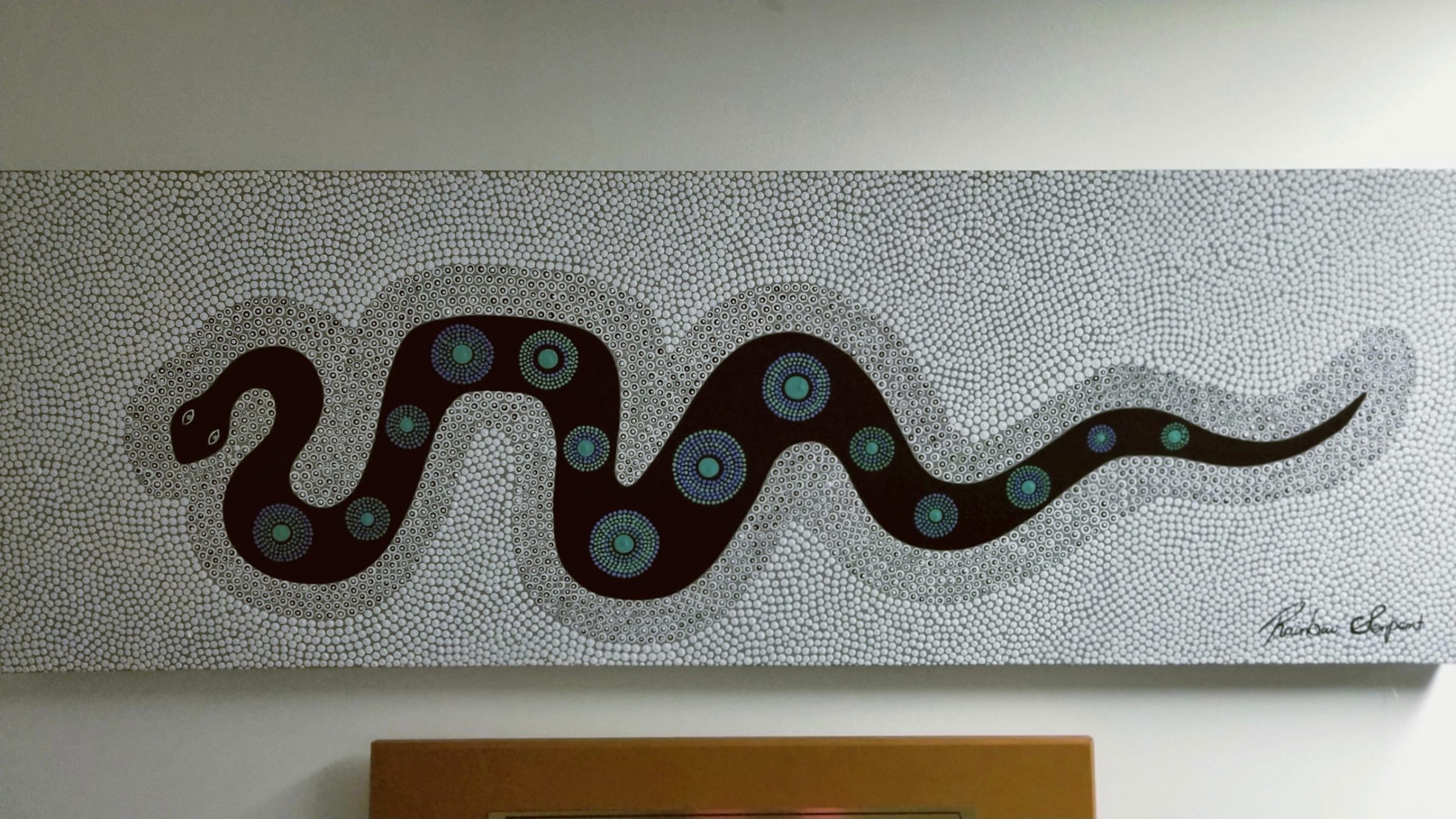
The artworks above are displayed in our Liverpool office have been completed by Aboriginal artist, Pam Brandy-Hall. Pam is part of the Bundjalung Tribe and is the daughter of Aboriginal activist, the late Jack Patton. Entirely self-taught, Pam is inspired by dreamtime stories, passed on to her from her Grandmother. Pam works with vivid combinations of earthy tones, pastels and ochres, dynamic lines and bold shapes characterize her modern designs which often employ graphic symbols from the flora and fauna of her ancestry. Pam’s skin name is Baribunma meaning ‘to dream about’ in Bundjalung.
Her work has been exhibited in locations as diverse as the Museo Internationale della Ceramiche Faenza, S.H. Irvin Gallery and the Rainbow Serpent Gallery in Sydney; the offices of Ansett Australia, Coffs Harbour Hospital and Maitland Council Chambers in NSW; Shepparton Museum in Victoria and OzAboriginal in Sydney .
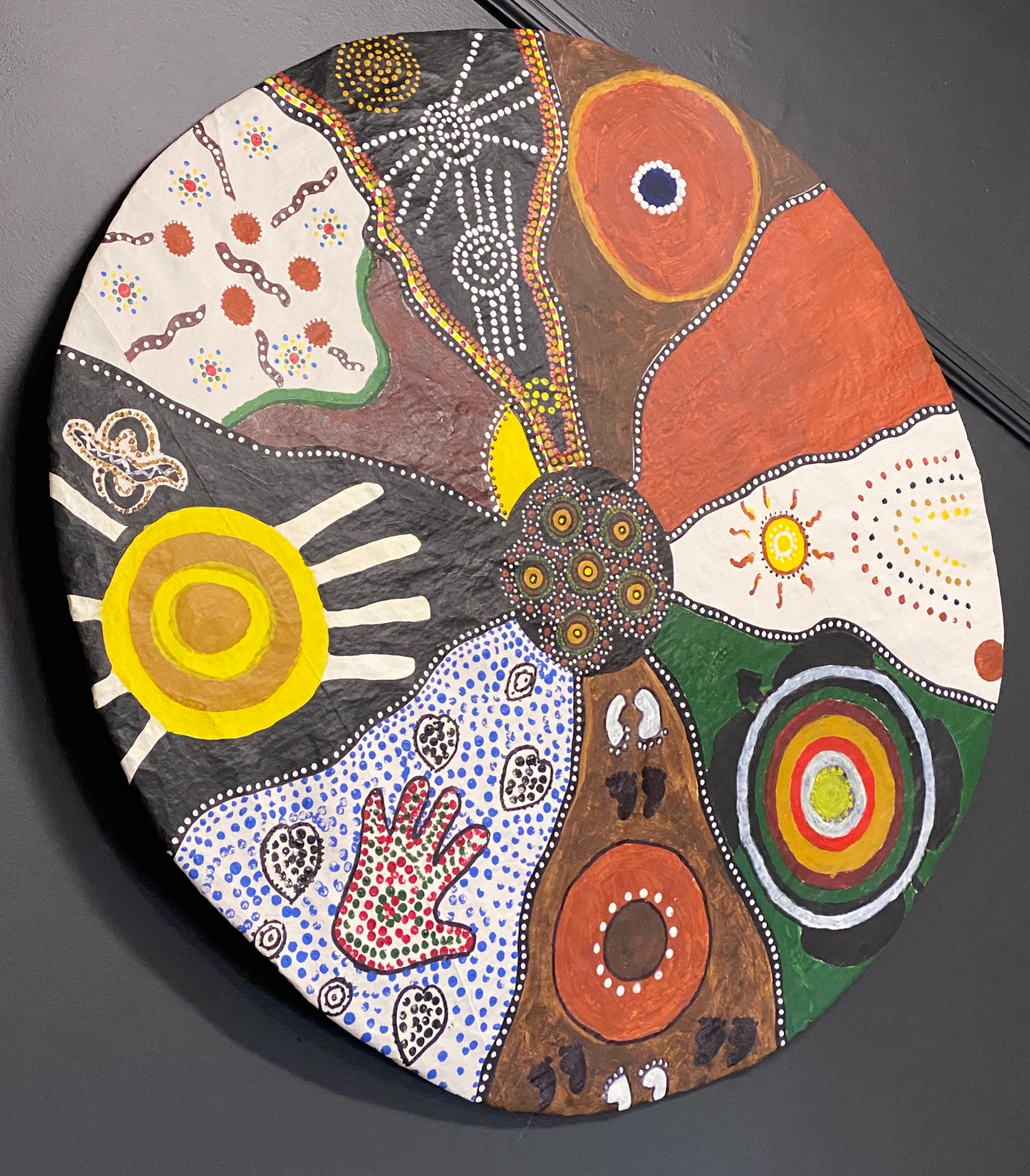
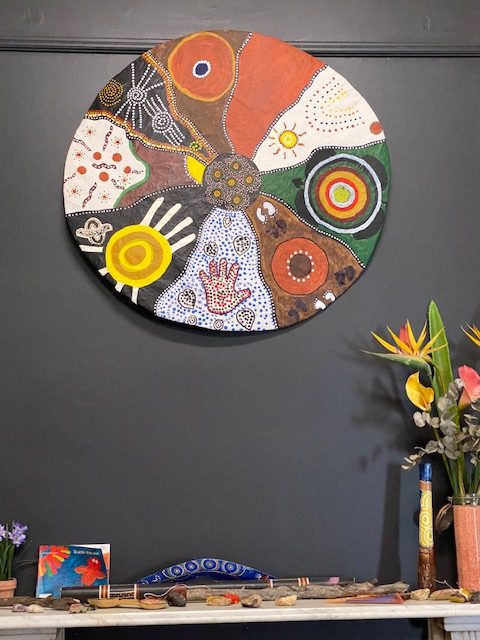
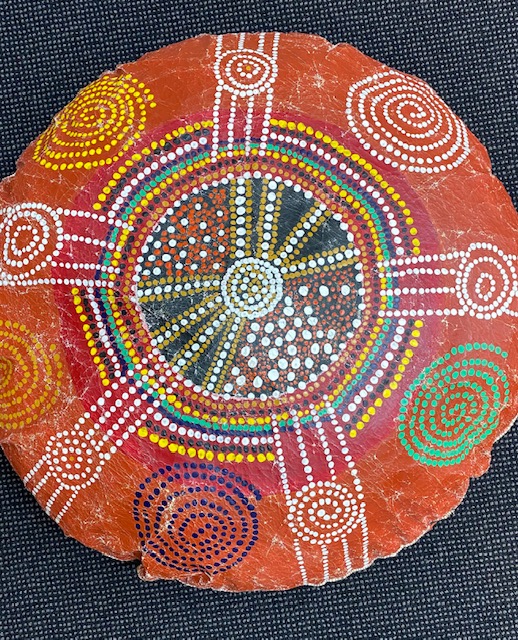
The artwork above is displayed at Goulburn Family Day Care. The Playgroup Leader and Educators completed Yarning Circle training and were inspired to create a combined artwork to represent the connection between the educators and the children they care for. Educator, Rhonda Perry, painted the centre circle representing the Family Day Care operations with the white circles representing the children and the brown circles representing the buildings. The green represents the outside play areas. Each of the surrounding sections were completed by individual educators who also received input from the children they care for to make sure their voices were included.
Educators have requested the opportunity to create an updated artwork in future as they learn more about Aboriginal culture, yarning and cultural connection.
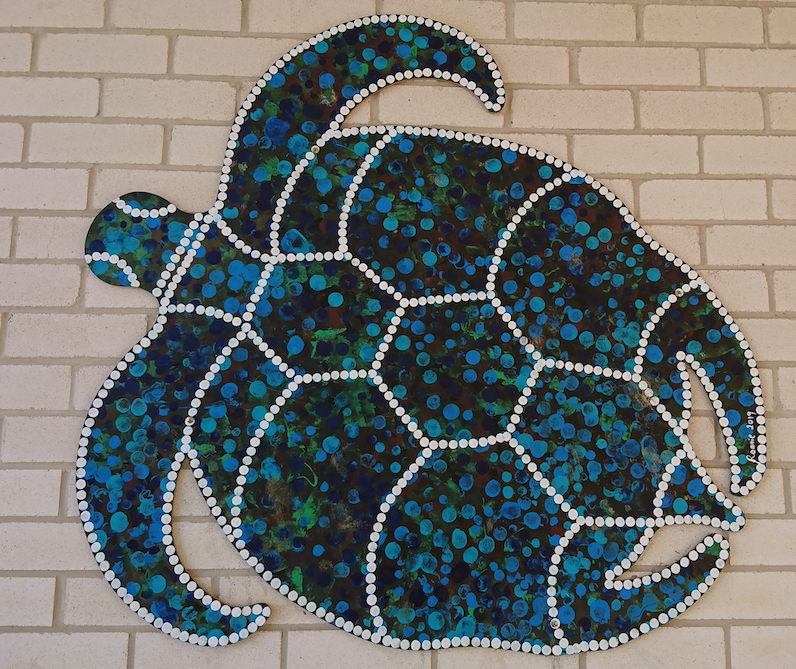
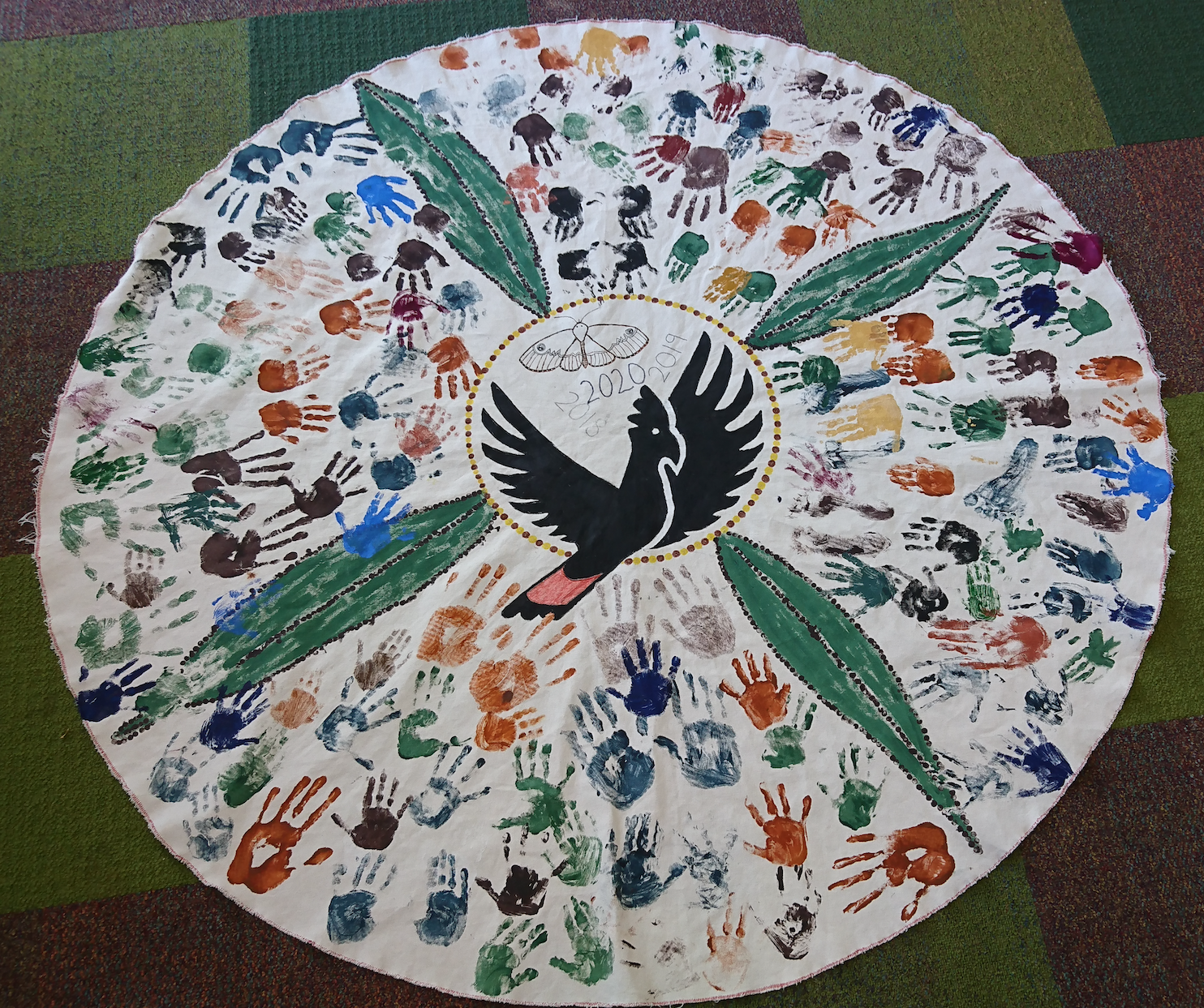
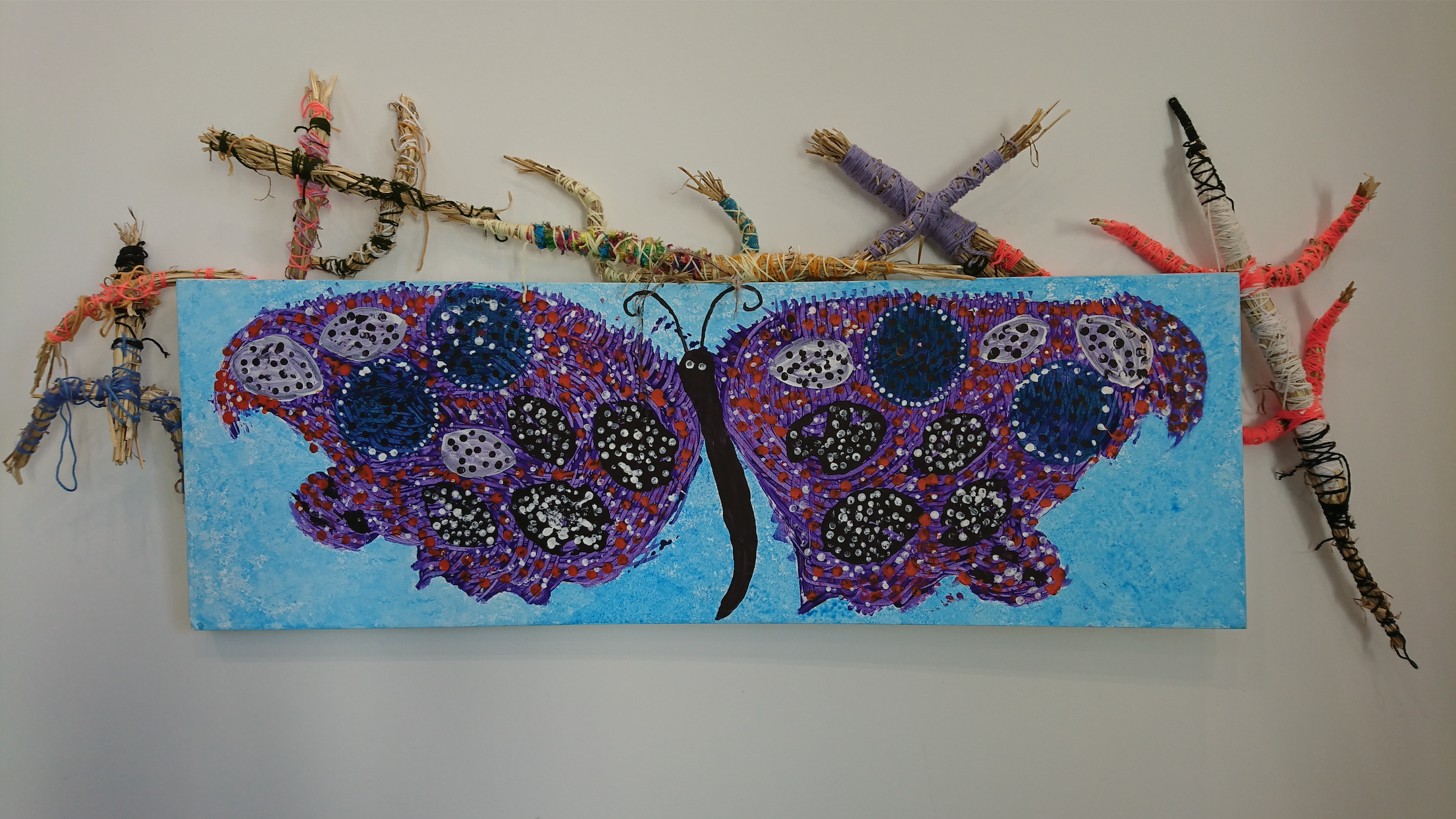
The artwork above is displayed at the Googong Early Learning Centre.
Mununja Butterfly painting with hay weaved animals surrounding it. The children at Googong Early Learning Centre engage in weaving each year with Ronnie, a local Aboriginal artist.
Turtle artwork done by Ronnie and the children of the ELC
Our Acknowledgment of Country mat is used by the children each day as they come together to sit around the mat to Acknowledge Country. These are the words that are said:
Yuumma (Hello)
Here is the dhawra (land)
Here is the sky
Here are all my friends
And here am I
Djan Yimaba (thank you) to the Ngoonawal People,
Who are for this dhawra we play on.
We promise to take care of the dhawra, the plants, the animals and each other.
